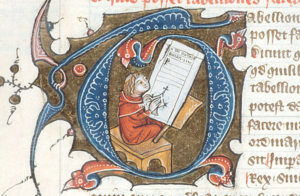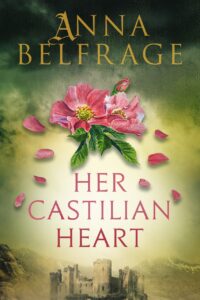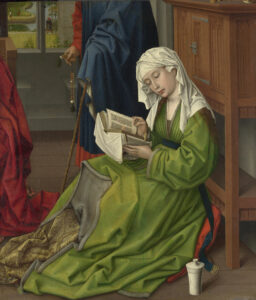 I’m delighted to welcome historical fiction writer Anna Belfrage to the writing blog. Had Anna been allowed to choose, she’d have become a time-traveller. As this was impossible, she became a financial professional with three absorbing interests: history, romance and writing. Anna always writes about love and is the author of the acclaimed time travelling series The Graham Saga, set in 17th century Scotland and Maryland, as well as the equally acclaimed medieval series The King’s Greatest Enemy set in 14th century England.
I’m delighted to welcome historical fiction writer Anna Belfrage to the writing blog. Had Anna been allowed to choose, she’d have become a time-traveller. As this was impossible, she became a financial professional with three absorbing interests: history, romance and writing. Anna always writes about love and is the author of the acclaimed time travelling series The Graham Saga, set in 17th century Scotland and Maryland, as well as the equally acclaimed medieval series The King’s Greatest Enemy set in 14th century England.
More recently, she has published Her Castilian Heart, the third in her medieval Castilian series set against the conquest of Wales. She has also written a new time travel romance, The Whirlpools of Time.
Welcome, Anna! Now you’re going to tell us something about language, obviously, not bad language…
“I am something of a language mongrel. Growing up in South America, my first years were predominantly spent in a Spanish-speaking environment. My mother was a language teacher and went to great lengths to ensure we spoke Swedish at home, and when she spoke to me in Swedish, she expected a reply in Swedish, otherwise she’d just pretend she didn’t understand. So, by the age of three, I was fluent—as fluent as such a small child is—in two languages. Some years later, I began school, an English speaking school.
I can still remember that first day at school. I had my younger sister by the hand, I couldn’t understand anything of what was said around me, but I was responsible for Sofia and knew I had to deliver her to her kindergarten class before somehow finding my own classroom. Clearly, my parents had great confidence in my capacity to navigate this strange environment, this despite my English vocabulary being restricted to “yes”, “no”, “thank you”, “mister”, and “King Solomon’s Mines”. (Don’t ask!)
Some months later, English tripped off my tongue as easily as Swedish and Spanish.
When I write, I write exclusively in English. My sister finds this very strange. “You should write something in Swedish,” she says. And maybe I should—especially when one of my WIPs are set in 17th century Sweden—but I just can’t. When I write in Swedish, there is a lack of voice. The only thing I write in Spanish is poetry, very private (and not too good) poetry that I won’t be sharing with anyone.
I write in English because I mostly read in English. I also write in English because of my very, very long love story with British history. Plus, the sheer expanse of the English vocabulary is addictive to a person who collects words like I do. This, however, doesn’t mean I don’t add the odd line of dialogue in another language in my novels. Many authors do to add a certain authenticity to their work. Quite a few authors haven’t bothered to do more than use Google translate, which results in quite horrifying results. Like when people litter their work with repeated dialogue in Spanish without recognising that Spanish differentiates between masculine and feminine… (Mimes stabbing herself with a sword in the belly.)
In my recent release, Her Castilian Heart, we’re back in medieval England. My characters express their thoughts and desires (via me) in English. In actual fact, English as we know it didn’t exist back then. Those who belonged to the rich and mighty spoke a version of French, while those lower down the ladder spoke an early version of what would, over time, become the rich and luscious English of today.
As I suspect very, very few people (including me) are conversant with Anglo Norman French, writing their voices in English was the logical choice—especially as they lived and breathed in England. But some of my characters are from Castile—one of the two dominant Christian kingdoms in medieval Spain—and to add a certain flavour, I’ve allowed Amalia, Elena and even Queen Eleanor to now and then express themselves in Spanish.
There are certain challenges in doing this: first of all, you want your readers to somehow grasp what is being said. If you restrict yourself to the odd expression like Ay, Dios (oh, God) or Santa María, sálvame (Virgin Mary, save me) chances are your reader will have no problem keeping up. But if they say things like Corre! Ya, ya, no me esperes, sálvate (Run, no, no, don’t wait for me, save yourself.), you somehow have to convey the meaning in the text. In the above case, I’d probably have whoever is being urged to save themselves reply “Save myself and leave you to die? Never!” thereby indirectly translating what was said in Spanish. What I would never do is insert a parenthesis with a translation (as I have seen some authors do) as, IMO, this becomes very annoying for the reader. A good writer finds other ways to offer the required translation, be it through the responding dialogue or through the character’s reflection on what was just said.
 Another challenge—especially when writing historical novels set in the thirteenth century—is that my Castilian people did not speak modern day Spanish. They spoke Castilian, still developing from its Latin roots to what would become the “Castellano” of today. While I have spent many happy months studying documents in medieval Castilian as part of my university studies of Spanish, I would not be comfortable writing it. Also, once again, to the modern day reader it would be confusing—or make them think I didn’t know my Spanish, and we can’t have that! Which is why I opted for using present-day Spanish, even if Amalia grumbles somewhat. She is, she tells me, very proud of her Castilian language.
Another challenge—especially when writing historical novels set in the thirteenth century—is that my Castilian people did not speak modern day Spanish. They spoke Castilian, still developing from its Latin roots to what would become the “Castellano” of today. While I have spent many happy months studying documents in medieval Castilian as part of my university studies of Spanish, I would not be comfortable writing it. Also, once again, to the modern day reader it would be confusing—or make them think I didn’t know my Spanish, and we can’t have that! Which is why I opted for using present-day Spanish, even if Amalia grumbles somewhat. She is, she tells me, very proud of her Castilian language.
In conclusion, I think the odd line or two in a foreign language definitely adds a flavour to the narrative—assuming the characters involved would speak more than one language. But to do so requires that the author has used correct grammar and vocabulary, that the author finds a non-intrusive mechanism to explain what is being said and that the author makes an informed choice as to what version of the language to use—something perhaps mostly valid for us history types.
I agree 100% with you, Anna. When my own heroine, Aurelia is in Vienna or Berlin, I give her a few German words just to add a bit of atmosphere and reinforce the setting. Like you, I find a round-the-houses way of making the meaning of that (very short) piece of foreign language obvious for the reader. And similarly, I wasn’t going to write the Roma Nova series in Latin…
__________
Find out more about Anna:
Website: www.annabelfrage.com
Twitter: https://twitter.com/abelfrageauthor
Facebook: https://www.facebook.com/annabelfrageauthor
Instagram: https://instagram.com/annabelfrageauthor
BookBub: https://www.bookbub.com/profile/anna-belfrage
Amazon Author Page: http://Author.to/ABG
Goodreads: https://www.goodreads.com/author/show/6449528.Anna_Belfrage
__________
What’s Her Castilian Heart about?

Blood is not always thicker than water…
At times a common bloodline is something of a curse—or so Robert FitzStephan discovers when he realises his half-brother, Eustace de Lamont, wants to kill him.
A murderous and greedy brother isn’t Robert’s only challenge. He and his wife, Noor, also have to handle their infected relationship with a mightily displeased Queen Eleanor—all because of their mysterious little foundling whom they refuse to abandon or allow the queen to lock away.
Eustace is persistent. When Robert’s life hangs in the balance, it falls to Noor to do whatever it takes to rip them free from the toothy jaws of fate.
Noor may be a woman, but weak she is not, and in her chest beats a heart as brave and ferocious as that of a lioness. But will her courage be enough to see them safe?
Where to buy Her Castilian Heart
Universal Link: http://myBook.to/HEART
Amazon UK: https://amzn.to/3cj9TIq
Amazon US: https://amzn.to/3dVZuCE
Amazon CA: https://amzn.to/3KfqvgF
Amazon AU: https://amzn.to/3AIBfks
My review of Her Castilian Heart
Historical fiction at its best transports the reader into another time and place – the heat, fear and smell of battle, the celebration of a marriage where fire flickers nearby when the bride’s hair is arranged with a spear point, or a voyage across a cold featureless sea where you feared might drop off the edge of the world into oblivion.
Settings may be frightening or fascinating, but all good historical fiction conveys the impression of being an eyewitness to what is happening around them as well as how they are acting in that context. Her Castilian Heart is a perfect example of this.
Amongst the medieval politics, obligations of loyalty, the detail of horses, gowns and coifs, you find people with wants and fears like ours. And this is the secret to Ms Belfrage’s books. Her characters desire peace at home, time to enjoy their marriage and family, to care for their employees and secure their future. But the times of Robert and Noor are unstable; war and rebellion surround them whether in England, Wales or France. Throw in an aggressive and deeply jealous half-brother whose wish to destroy Robert has completely taken over his purpose and motivation in life and you have a level of tension that is both delightful and frightening for the reader.
Ms Belfrage draws and handles her cast of characters with a deft hand to the extent that each is imprinted on you without the least hint of confusion. They can be passionate, stubborn, despairing, caring and courageous as they meet challenges and enjoy triumphs. Their interactions with recorded historical figures are seamless and authentic – a real pleasure. A highly recommended read.
Alison Morton is the author of Roma Nova thrillers – INCEPTIO, CARINA (novella), PERFIDITAS, SUCCESSIO, AURELIA, NEXUS (novella), INSURRECTIO and RETALIO, and ROMA NOVA EXTRA, a collection of short stories. Audiobooks are available for four of the series.Double Identity, a contemporary conspiracy, starts a new series of thrillers. JULIA PRIMA, a new Roma Nova story set in the late 4th century, is now out.
Find out more about Roma Nova, its origins, stories and heroines and taste world the latest contemporary thriller Double Identity… Download ‘Welcome to Alison Morton’s Thriller Worlds’, a FREE eBook, as a thank you gift when you sign up to Alison’s monthly email update. You’ll also be among the first to know about news and book progress before everybody else, and take part in giveaways.














I loved this post! This is a topic rarely discussed. In my most recent novel, I added a few lines of dialogue in Spanish for scenes in Panama. So far no one complained! Thanks for the discussion!
Thanks for your comment, Sophie. Yes, it’s a very fine line. I love using such words to enhance atmosphere and/or develop characters. I was a practising professional linguist before I took to scribbling, so am super aware of how careful you have to be. Discretion is the watchword!
The odd line adds atmosphere. Entire dialogues in another language can have the reader disconnect with the story. I just read a book peppered with long sentences in Russian. I don’t know Russian and ended up more and more irritated as the story progressed….
Dear Alison,
Thank you for inviting me to visit – and for a lovely review! And boy am I glad you haven’t written your Roma Nova books in Latin!
It was a pleasure to invite you to write about a subject very dear to my heart! And as for writing Roma Nova in Latin, that would have taken me a very long time and “Tempus edax rerum”, as Ovid would have said.
An excellent post! My parents were more forgiving Anna. They’d speak to me in Greek and I’d answer back in English. At the time it didn’t seem strange but looking back on it now, it was a little odd to be conversing in two different languages. It would have been better for me had I just stuck with Greek. At least then my verb tense wouldn’t be so appalling.
You’re not the only one to muddle things up between languages! Sometimes it’s easier to find a word to express yourself in one language than in another.
Ha! My mother was a DRAGON. But then, she was a language teacher. . .
It is good to hear other authors tackling the same challenge I had when writing “The Muse of Freedom: a Cévenoles Sagas novel”. The story is set in the Cévennes in late 17th c. France where Occitan was still spoken by many. Most knew a few words in French, but using the Occitan phrases helped to show my protaganist’s challenges in communicating with the mountain folk. It was fascinating to learn about your upbringing!